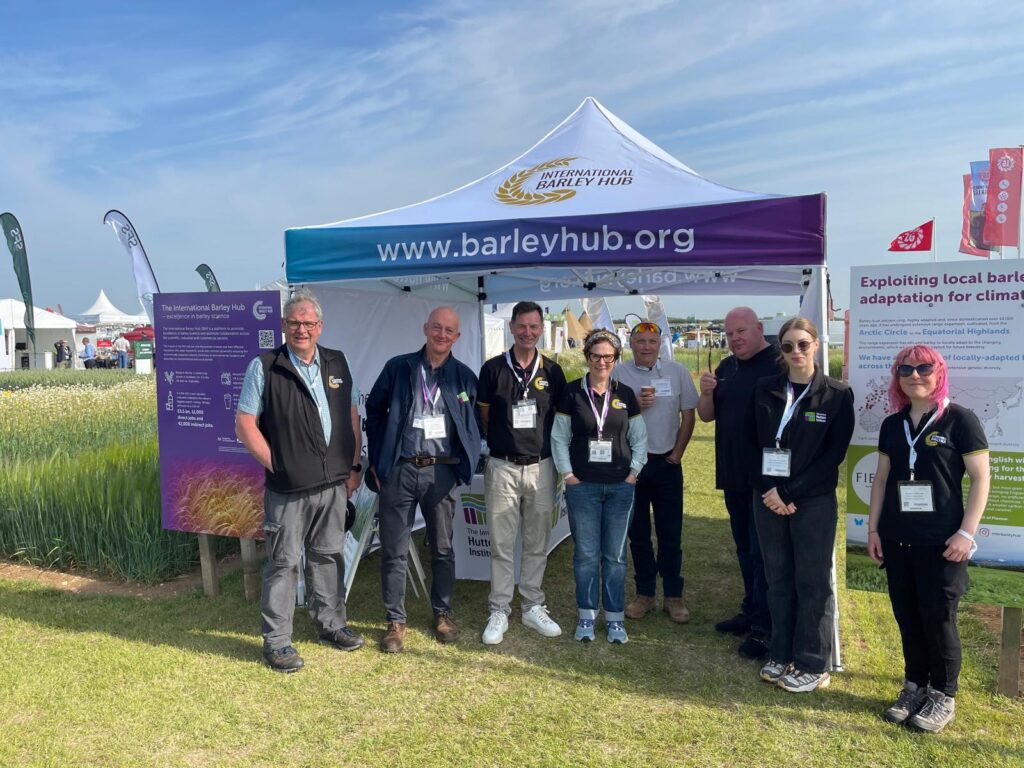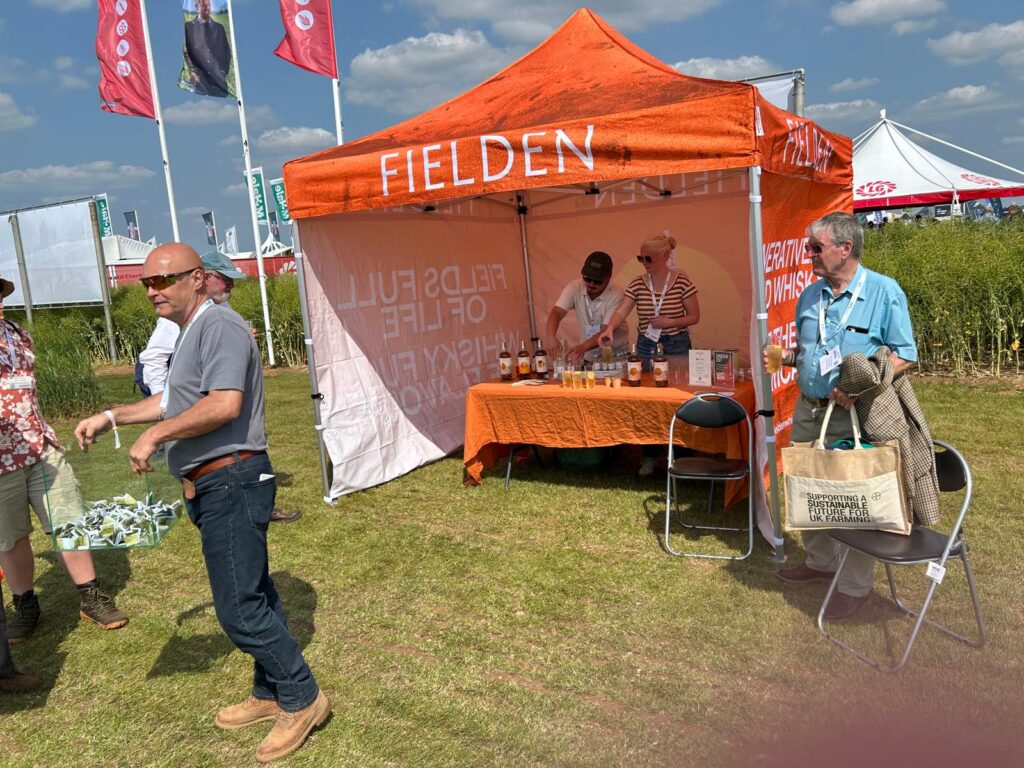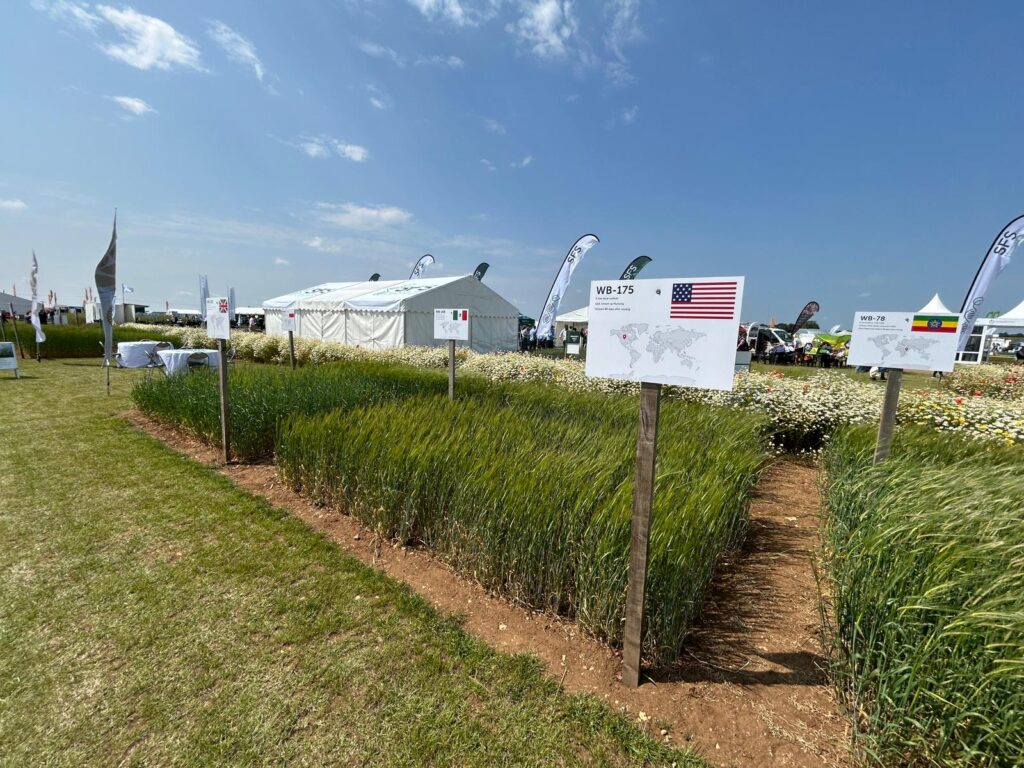Bridging Science and Practice at Cereals 2025
The Cereals Arable Event 2025, held on 11th and 12th June, reaffirmed its status as the UK’s leading showcase for the arable sector, attracting over 20,000 participants. That’s a significant increase of 3,000 attendees compared to 2024. Hosted this year by YouTube farming personality Andrew Ward, “WardysWaffle”, at Heath Farm in Lincolnshire, the event served as a dynamic knowledge exchange hub connecting researchers, farmers, industry stakeholders, and policy influencers.
Engagement and Impact: Bridging Science and Practice
Our interdisciplinary team comprising Robbie Waugh, Joanne Russell, Luke Ramsay, Ruth Hamilton and Malcolm Macaulay from Cell and Molecular Siences, Paul Shaw, Information and Computational Sciences, Dan Langford, Scientific Services, Nadia MacGregor, Communications, and George Lawrie, Chair of the International Barley Hub (IBH), engaged with visitors continuously across both days. Our aim was to translate genetic research and plant diversity into practical insights for sustainable agriculture.

Our 20 demonstration plots, showcasing a globally-sourced collection of locally adapted landrace lines, drew high levels of interest. These lines, evolved under diverse agro-climatic conditions, have proven value as raw material for climate-resilient breeding. They are particularly vital in the context of increasingly volatile weather patterns and shifting production zones across the UK and beyond.
Among the standout exhibits was a unique awnless (that is without awns or beard) barley from Ethiopia. Its unfamiliar morphology sparked conversations around agrobiodiversity, breeding potential, and the cultural value of non-mainstream crop traits. Equally popular were culinary offerings featuring bere barley, a Scottish heritage grain, served as shortbread and biscuits, highlighting the intersection of crop conservation and value-added products.
Scientific Dialogue: Gene Editing and Future Cropping
Our team attended several talks, including discussions on the implications of gene editing(GE)technologies for UK agriculture. These sessions provided crucial policy and technical context for attendees. However, many issues still exist before GE is adopted as an accepted technology.
Collaboration remained a strong theme throughout. A notable interaction was with Stephen Jones, director of The British Quinoa Company, with whom we are co-developing a healthier black barley suited for contemporary diets. Think salads, breads and risottos.
Innovation Meets Regeneration: Partnering with Fielden Whisky
We were also pleased to host friends and potential collaborators, Fielden Whisky, who pioneer regenerative farming practices and heritage grain revival.
At our drinks reception, George introduced the IBH, Robbie explained how diversity found in our plots is being exploited, and master distiller, Chico Rosa explained Fielden’s model of integrating ecosystem health with artisanal spirit production. Fielden’s generous raffle donations of whisky bottles and branded caps drew large crowds and encouraged further discussions.

Looking Ahead: Cereals 2026
Preparations are in top gear for Cereals 2026, to be held at the iconic Diddly Squat Farm in the Cotswolds, home of Clarkson’s Farm. Rumour has it, 85% of tickets are sold already!
Conclusion
Cereals 2025 demonstrated the effectiveness of making scientific innovation visible and accessible. The enthusiastic reception of our work underscores the critical role of genetic diversity, heritage and landrace germplasm, and research-industry-public engagement in driving the transition to resilient and sustainable barley.

Disclaimer: The views expressed in this blog post are the views of the author, and not an official position of the institute or funder.
